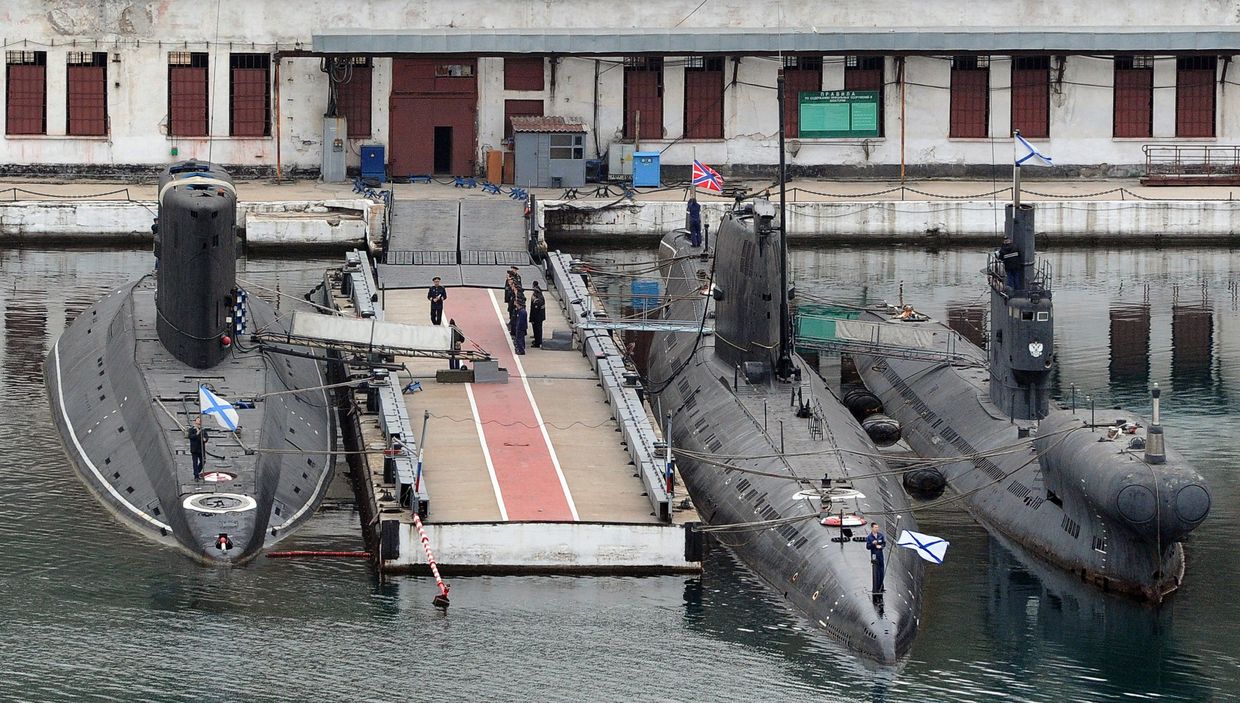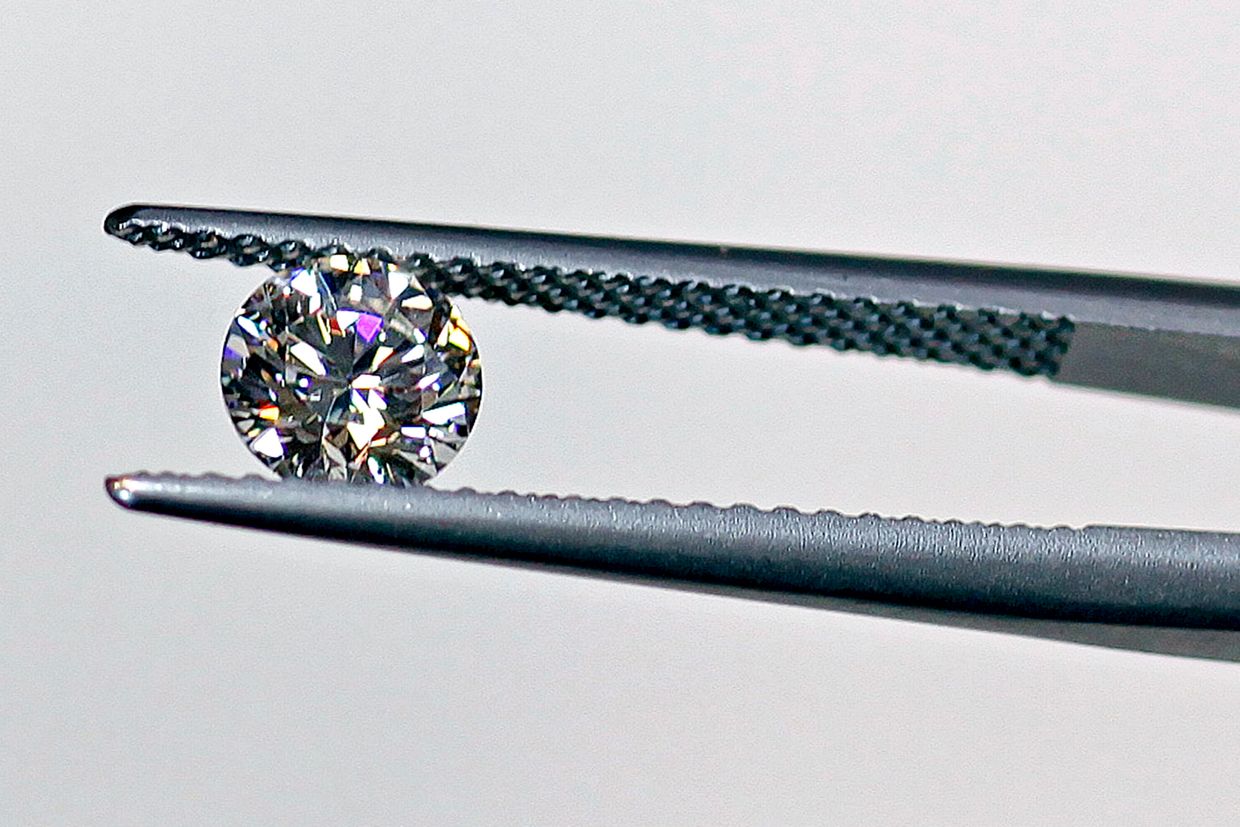Welcome to Investigative Stories from Ukraine, the Kyiv Independent's newsletter that walks you through the most prominent investigations of the past week.
If you are fond of in-depth journalism that exposes war crimes, corruption, and abuse of power across state organizations in Ukraine and beyond, subscribe to our investigative newsletter.
If you enjoy this newsletter, consider joining our membership or supporting us with a one-time donation. Start supporting independent journalism today.
Kyiv Independent’s exclusive
______________________________________________
Russian diamonds flow West despite sanctions, directly financing Russia’s war
Major brands like Cartier and Tiffany claim they don’t sell Russian diamonds – but they may be misleading their clients. Russian stones likely end up in their pieces with their origin being whitewashed, according to an investigation by the Kyiv Independent.
Russian diamonds still pave their way to the Western market despite claims by major brands and the U.S. restrictions introduced following the full-scale Russian invasion of Ukraine.
Since the sanctions came into place, Russian diamonds have changed their route. Instead of going through the EU, where regulations ensure some transparency, most Russian diamonds are now sold through Dubai, which industry insiders call the “laundromat” of the diamond market.
Major luxury brands buy from intermediary companies, knowingly or unknowingly purchasing diamonds from Russia, according to industry insiders and import-export data analyzed by the Kyiv Independent.

The U.S. specifically sanctioned Alrosa, the primary producer of Russian diamonds, partly owned by the Russian state. Not only didn’t the company suffer for long, it even boosted its sales in 2023. Some profit could be spent on direct support for the Russian military – the company sponsors a submarine that is part of Russia’s Black Sea Fleet and carries Kalibr missiles. Such missiles have been widely used against Ukrainian cities, killing civilians.
Read the full story in English here.
Impact
______________________________________________
Top Indian diamond manufacturer vows to stop selling Russian diamonds
Following the Kyiv Independent’s story, which named the intermediaries that keep Russian diamonds flowing to Western markets, one of the subjects of the journalist investigation, Shree Ramkrishna Exports (SRK) from India, said that they would stop buying Russian diamonds.
SRK released its statement the day after the story's publication.
A major Indian diamond trader, SRK was one of the biggest importers of Russian stones since the start of the full-scale invasion, having imported over $100 million in that period, according to the Kyiv Independent’s investigation.
In September 2023, Ukraine’s anti-corruption agency labeled SRK a “sponsor of war” for purchasing Russian diamonds. Citing SRK's statement, Ukraine’s anti-corruption agency said they removed SRK from the “sponsor of war” list on Oct. 13, the day after SRK’s statement.
Top investigative stories
______________________________________________
Suspected Ukrainian accomplice in Hroza attack may be fighting for Russian forces
Volodymyr Mamon, whom Ukraine’s State Security Service (SBU) suspects of assisting Russian forces in targeting a deadly missile strike earlier this month, may be fighting for Russia in its war against Ukraine, according to an investigation by a Ukrainian media outlet Slidstvo.Info.
On Oct. 5, 2023, a Russian Iskander missile struck a funeral dinner for a Ukrainian soldier in Hroza, a village in the Kharkiv Oblast, killing 59 people. Ukrainian and international authorities denounced the Hroza attack as a war crime.
Volodymyr Mamon and his brother Dmytro Mamon tipped the Russians off about the funeral, the SBU said a few days later, on Oct. 11. According to the statement, law enforcement suspects the two of gathering information and passing it to Russia to help it target the attack on the funeral.
Slidstvo.Info contacted Volodymyr’s friend, who told journalists that Volodymyr is “in the special military operation area,” a common Russian euphemism that means one is participating in Russia’s invasion of Ukraine.
Previous investigations by Slidstvo.Info and Schemes, a Radio Free Europe/Free Liberty project, found that the Mamon brothers had extensively collaborated with Russian authorities when their native area of Kharkiv Oblast was occupied.
Read the full investigation in Ukrainian here.
Russian private army Redut directly controlled by country’s military intelligence
Russian private military company Redut is financed and controlled by the country’s military intelligence, known under its Russian acronym GRU, according to Radio Free Europe/Radio Liberty’s investigative projects Schemes and System.
The journalist investigation revealed that Redut, which analysts call a Wagner Group successor, isn’t a separate entity but a name used to refer to at least 20 small military units, all controlled by GRU.
Fighters, part of the military company interviewed by the RFE/RL, confirmed that Redut’s is just a label for volunteer units organized by GRU’s 16th Separate Brigade.
Redut was founded by GRU Lieutenant General Vladimir Alekseev and is managed by Colonel Alexey Kondratiev, according to the RFE/RL-obtained documents, interviews with Redut fighters, and information from open sources.
According to the leaked documents recovered in liberated territories and materials retrieved from the phones of Redut fighters, the military company’s forces participated in Russia’s failed attempts to capture Kyiv in March 2022 and Kharkiv in April 2022.
The journalist investigation identified over 200 Redut servicemen who fought in the Kharkiv Oblast, over 30 servicemen who fought in the Kyiv Oblast, and three Redut regiment commanders who joined Russia’s war against Ukraine as early as 2014. Many of the fighters and two regiment commanders were previously part of Wagner.
The Redut brand is reportedly used to recruit fighters online, promising salaries of $2,000 per month, almost three times Russia’s average wage for soldiers. Redut has successfully attracted at least 25,000 fighters.
In December 2022, a court in Kharkiv Oblast convicted four Redut fighters of torturing civilians, a war crime.
Watch the full story in Ukrainian here.
Meanwhile, in Russia
______________________________________________
Leading Russian military-industrialist still not sanctioned by EU, UK
Mkrtich Okroyan, a leading figure in Russia’s military-industrial complex, is still not under sanctions by the EU and UK, where he and his family own multi-million-dollar properties, according to an investigation by the Anti-Corruption Foundation (ACF) of jailed Russian opposition leader Alexey Navalny.
According to the publication, Okroyan is the chief designer and co-owner of Soyuz, a major company in Russia’s military-industrial complex. What makes Soyuz so important is their designs of engines for Kh-family missiles.
The Russian military has extensively used missiles running on Soyuz engines in attacks that have killed dozens of civilians in Ukraine. Among such attacks was one in Uman in central Ukraine, with a death toll of 23 people in April.
Citing the company registration documents, ACF reported that Okroyan co-owns Soyuz via his own and his family’s shell companies. Okroyan’s Cyprus shell firm holds over a third of Soyuz, while his wife and daughter also own parts of Soyuz through shell firms.
Moreover, ACF found a 20-million-euro villa in southern Spain held by a company associated with the Okroyan family.
According to a previous ACF investigation, Okroyan owned a 10-million-pound mansion in London’s suburbs but transferred the title to his daughter in 2020, a common technique to avoid sanctions.
In September 2023, the U.S. sanctioned Okroyan and his family for his connections to Soyuz following ACF’s first investigation from February 2023, but they are yet to fall under the EU and UK sanctions.
Watch the full story in Russian with English subtitles here.
Sanctioned Russian billionaires get Dominica ‘golden passports’
Hundreds of Russians, including at least six oligarchs and three internationally wanted persons, received Dominican passports through citizenship by investment program, according to an investigation by the Organized Crime and Corruption Reporting Project and its media partners. It’s not clear over what time period they got the passports.
Under Dominica’s citizenship by investment program – widely known as “golden passports” – any person who invests $100,000 in Dominica’s sovereign fund can become a citizen and get visa-free travel to dozens of countries worldwide.
According to the investigation, Azerbaijan-born Zarakh Iliev, who made his fortune in Russia and is under UK and Ukraine sanctions, is the most prominent Russian oligarch with a Dominican passport.
OCCRP analyzed records of 7,700 golden passport holders and identified officials from other repressive regimes subject to human rights violations and criminal charges in their home countries.
The broader investigation also documented one instance in which Dominican passports were used to evade sanctions imposed on Iran. The journalist investigation suggests Russian officials could use the Dominican passports to do the same.
In March 2022, Dominica stopped issuing “golden passports” to Russian and Belarusian citizens, following the trend of other countries suspending similar programs after the full-scale invasion.
Read the full story in Russian here.













